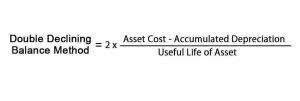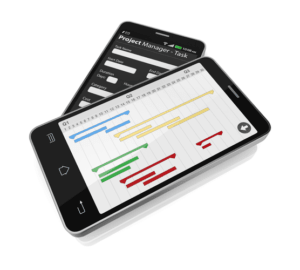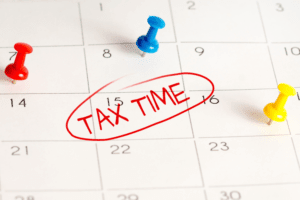
You’ll use this data to identify patterns and trends that can inform future budgeting decisions. By hotel budget incorporating these components into your planning, you can ensure that all financial aspects of the hotel’s operations are comprehensively planned and managed. Utilize historical records, market analysis, and trend identification to establish a solid foundation for your budget. Study previous years’ financial performance, booking patterns, and consumer behavior to formulate reasonable assumptions about future performance. Be mindful of cyclical variations and macroeconomic influences affecting your region and target markets. This type of budget assists management in prioritizing long-term assets and infrastructure needs while balancing short-term financial requirements.
Hotel Budget: Pricing Strategies to Boost Revenue
Always embrace change, stay informed about industry trends, and remain open to feedback from your team and guests. It might look like a never-ending process, and still, you won’t be left with accurate data. For effective hotel budgeting and forecasting, you will need reliable and distinct backup data. By considering all these elements, your hotel can stay on track to achieve its objectives and stay afloat no matter the macro or micro economic factors. By using historical forecasting, the hotel can analyze revenue data from similar services, such as the hotel’s existing wellness and fitness facilities. They can look at the average spending per customer, the frequency of visits, and the seasonal variations in demand.

The better the data, the better the outcome. Start making smarter revenue decisions today
- In today’s competitive market, having the confidence of investors can be a significant advantage for hotels seeking to expand or upgrade their facilities.
- Inflation, recession, and other conditions can also impact the hotel budgeting plan.
- While hotel budgets focus on short-term forecasts, hotel management must keep sight of long-term needs too, and plan accordingly.
- Typically, the hotel budget season starts towards the end of August with presentations to management starting the following month.
- Without referring to last year’s numbers, this method requires managers to create and justify each budget item and category, pushing the team to review what´s most vital to running your hotel business.
- In such situations, one cannot simply draw budgeting conclusions based on previous years’ data.
Typically, the hotel budget season starts towards the end of August with presentations to management starting the following month. All of these factors can heavily influence the accuracy of your hotel budget plan. In practical terms, taking an agile normal balance approach and adjusting your budget later this budget season can be beneficial for any hotel. Each department within a hotel develops its own budget detailing specific revenue targets, operational costs, capital expenditures, and staffing requirements. Examples include housekeeping, food & beverage, front office, maintenance, sales & marketing, human resources, and accounting. Many hotels take an expense budgeting approach to their financial budget.
Step by Step Guide to Creating a Hotel Budget Plan
- When budgeting for operation expenses, break them down into specific items so that you can get a more accurate picture of your projected operational costs.
- A detailed budget provides this assurance by outlining the hotel’s financial strategy and demonstrating its ability to manage resources effectively.
- Typically, cash flow analysis combines both to predict where and when revenue rains in.
- It’s not just a tool for the finance department; it influences decision-making across all levels of your operation and determines how resources are allocated during the budgeted timeframe.
- A central aspect of budgeting in the hospitality industry is the consideration of external factors that influence demand and pricing.
- For preparing these spreadsheet reports, they consider terms like occupancy rate and average daily rate for both on and off-seasons.
They always say you should have a “cushion” when it comes to budgeting, and hotel budgets are no exception. Unpredictable events—whether they’re market shifts, fluctuations in demand, emergencies, or issues within your hotel—can significantly impact your budget if you’re not prepared. To avoid this pitfall, it’s essential to build in an “emergency fund” as part of your budget.
Operating Expenses
- More room bookings will mean various revenue streams like breakfast revenue can also be adjusted upwardly.
- Drawing objectives is the way through which you can gauge your budgets, keeping in mind internal and external factors.
- Successful hotel budgeting and forecasting require techniques and a combination of sound strategic thinking, rigorous data analysis, and continuous improvement.
- Every hotel needs a solid financial plan to ensure that its financial outcomes align with its business goals, and that each department plays its part in hitting those targets.
- A budget serves as a benchmark against which a hotel’s financial performance can be measured.
Hotels can use their budget to analyze spending and make strategic decisions, such as identifying areas where cost-cutting measures can be implemented or services not delivering value. Especially in resort hotel markets, tour operators have for too long influenced hoteliers on how to run their business. Hoteliers need Law Firm Accounts Receivable Management to get more strategic insight and understanding of the financial side of the business.


Companies can create small due dates for information to be submitted before the actual deadline so that there will be no steps missed or last-minute entries that may have been forgotten. A hotel can conduct an energy audit to identify areas where energy consumption can be reduced. Simple measures such as installing LED lighting, using programmable thermostats, and educating staff on energy-saving practices can result in significant cost savings.
